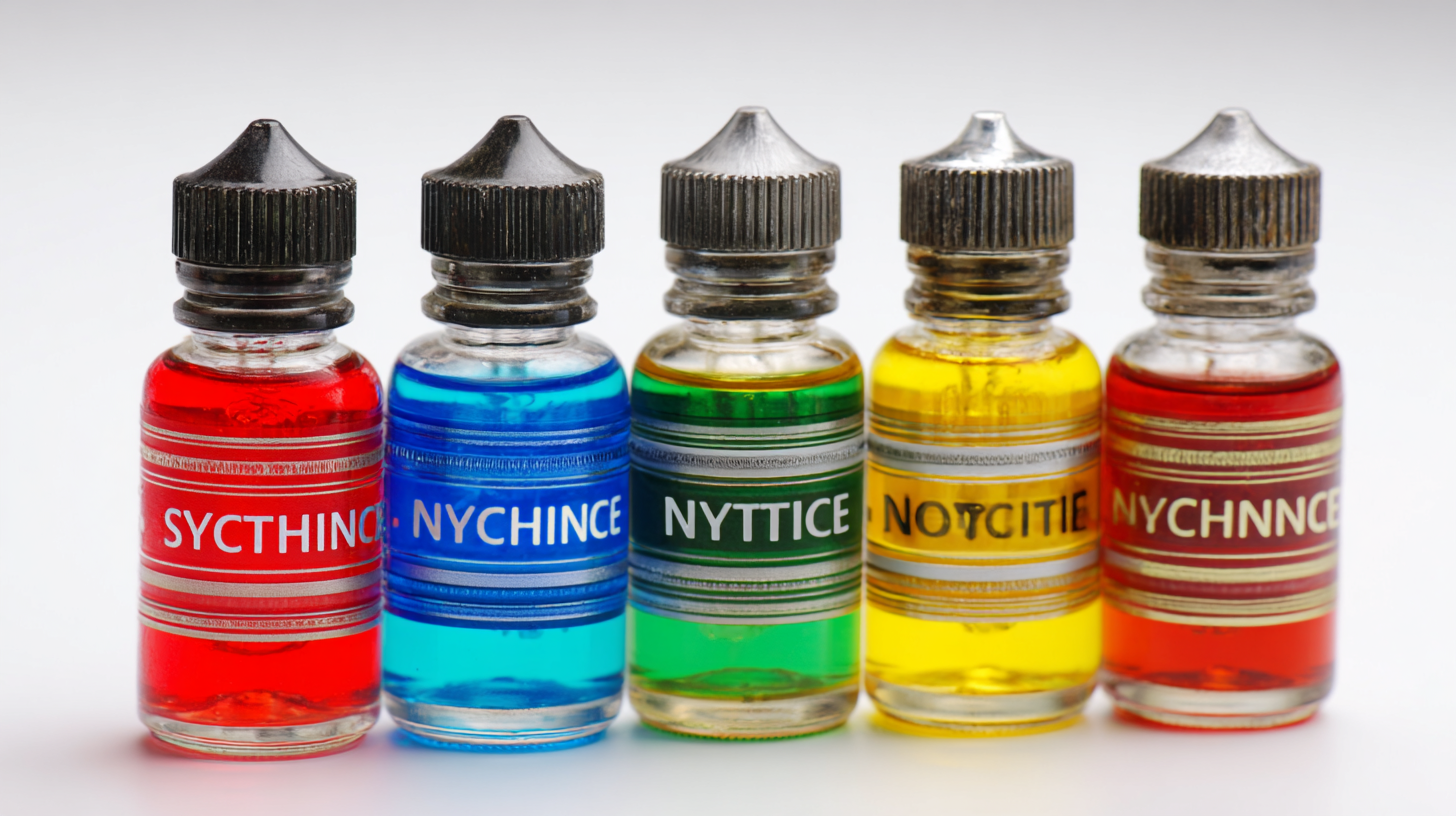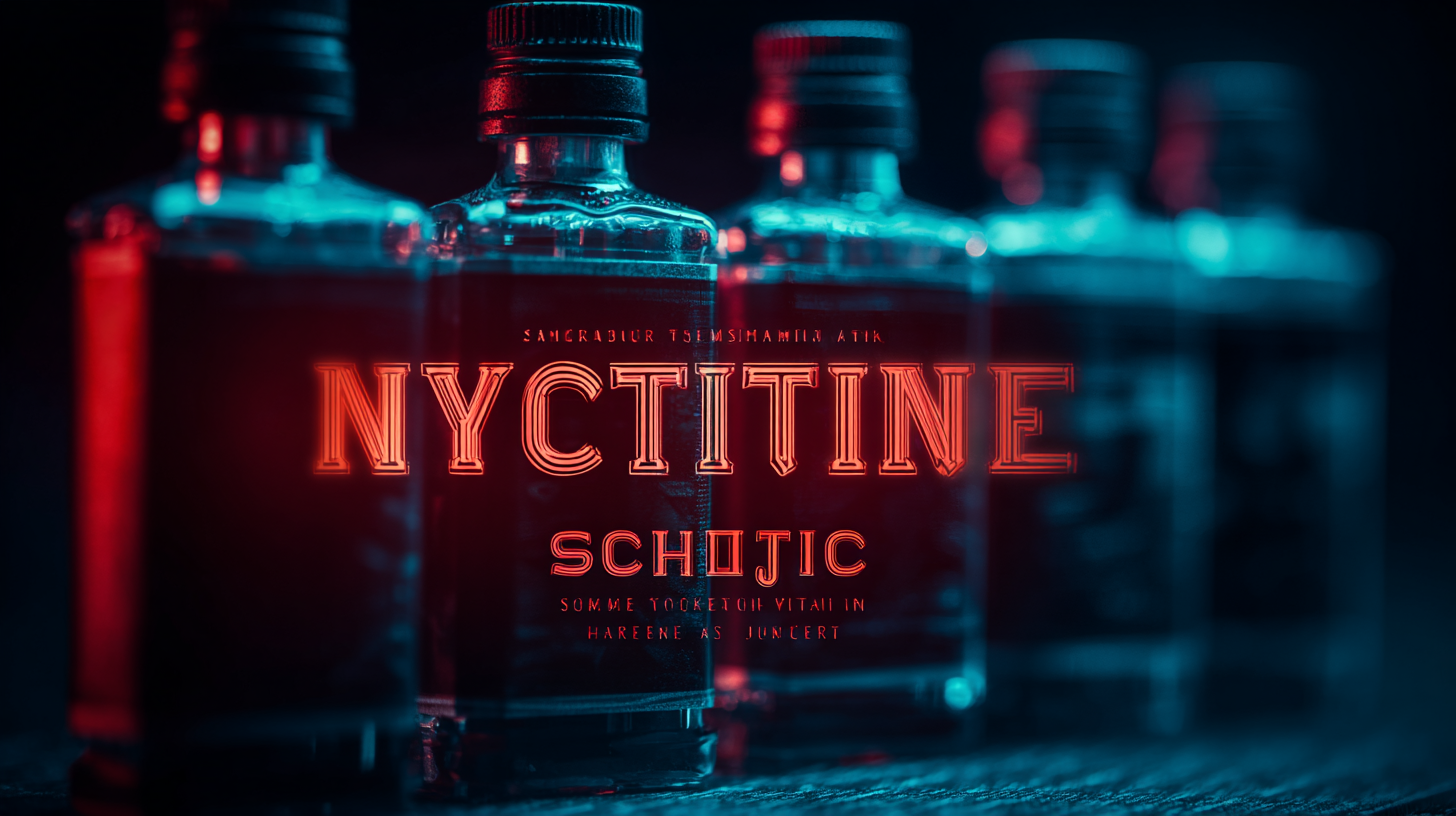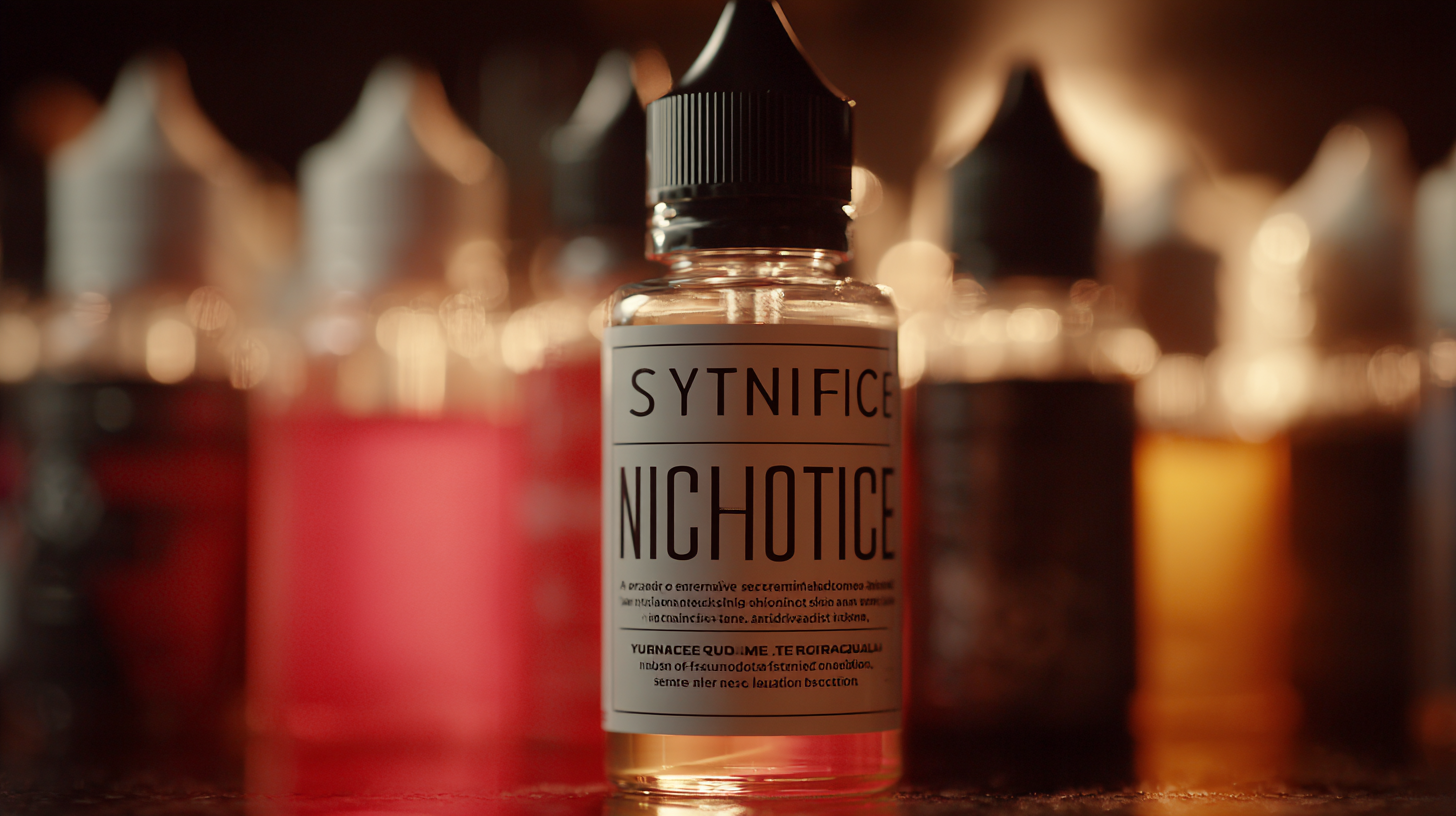The e-cigarette market has witnessed a significant transformation in recent years, particularly with the rise of Synthetic Nicotine E-Juice, which provides an alternative to traditional tobacco-derived nicotine. According to a report by Grand View Research, the global e-liquid market size was valued at USD 4.0 billion in 2022 and is expected to expand at a compound annual growth rate (CAGR) of 23.8% from 2023 to 2030. This surge in demand has led to a diversified supplier landscape, making it crucial for businesses to identify top suppliers who can deliver high-quality synthetic nicotine products.

As regulatory frameworks continue to evolve, understanding the market dynamics and supplier reliability becomes essential for ensuring product safety and consumer satisfaction. In this guide, we will explore key tips and insights on how to effectively identify top suppliers for the best Synthetic Nicotine E-Juice to stay competitive in this rapidly growing market.
 When it comes to sourcing synthetic nicotine for e-juices, selecting quality suppliers is paramount. The e-cigarette market has seen a significant rise in demand for synthetic nicotine, due in part to its potential advantages over traditional tobacco-derived nicotine. However, not all suppliers maintain the same standards of quality, purity, and safety. For manufacturers, working with reputable suppliers can ensure that their products are not only compliant with regulations but also meet consumer expectations for quality and taste.
When it comes to sourcing synthetic nicotine for e-juices, selecting quality suppliers is paramount. The e-cigarette market has seen a significant rise in demand for synthetic nicotine, due in part to its potential advantages over traditional tobacco-derived nicotine. However, not all suppliers maintain the same standards of quality, purity, and safety. For manufacturers, working with reputable suppliers can ensure that their products are not only compliant with regulations but also meet consumer expectations for quality and taste.
The importance of selecting quality suppliers lies in their impact on product consistency and brand trust. High-quality synthetic nicotine can lead to a more enjoyable vaping experience, while subpar ingredients can result in an inferior product that may harm both consumers and brand reputation. Suppliers who invest in rigorous testing and transparency about their sourcing processes are more likely to provide e-juice manufacturers with the quality assurance they need. This cultivation of a strong supplier relationship can ultimately lead to innovation and competitiveness in the ever-evolving e-juice market.
When evaluating suppliers of synthetic nicotine e-juice, it's essential to consider several key factors. First and foremost, the quality and purity of the synthetic nicotine should be the highest priority. According to recent industry reports, the purity level of synthetic nicotine impacts not only the flavor but also safety and regulatory compliance. Suppliers who provide Certificates of Analysis (CoA) can assure you of their product's quality.
Another important consideration is the supplier's production methods. Data from a systematic literature review indicates that suppliers employing advanced technologies for production tend to have better quality control and environmental practices. Assessing the sustainability of their operations—such as their ability to manage industrial wastewater—can give insights into their commitment to both quality and environmental responsibility.
Tips for finding the right supplier include requesting samples for independent testing, researching their compliance with industry regulations, and seeking testimonials from other businesses. Additionally, an examination of their production scale can inform you of their capacity to meet your demands consistently. These factors can significantly enhance your selection process, ensuring you partner with a reliable supplier.
The market for synthetic nicotine e-juice has been witnessing significant changes, driven by evolving consumer preferences and regulatory shifts. As vaping continues to gain popularity, manufacturers are focusing on producing higher-quality synthetic nicotine products that cater to health-conscious consumers. Understanding these market trends is crucial for businesses looking to identify top suppliers and secure the best ingredients for their e-juices.
To start identifying suppliers, it’s essential to consider the purity and sourcing of synthetic nicotine. Ensure that suppliers provide transparent information about their manufacturing processes and the chemical composition of their products. This transparency not only builds trust but also aligns with the growing demand for products that prioritize safety and quality.
Another tip is to keep an eye on supplier certifications and compliance with industry regulations. Engaging with suppliers who are compliant with standards set by health authorities can significantly reduce risks and ensure that your products meet the necessary legal requirements. Regularly attending industry trade shows and networking events can also provide insights into reputable suppliers who are making waves in the synthetic nicotine market.
| Supplier Type | Location | Production Capacity (liters/month) | Quality Certifications | Market Trend Impact |
|---|---|---|---|---|
| Manufacturer | United States | 50,000 | ISO 9001 | High demand for synthetic nicotine |
| Distributor | Europe | 30,000 | GMP | Growing trend towards vaping |
| Supplier | Asia | 20,000 | ISO 22000 | Price fluctuations in raw materials |
| Contract Manufacturer | North America | 40,000 | FDA Compliance | Regulatory changes impacting sales |
When seeking top suppliers of synthetic nicotine e-juice, certain qualities stand out as essential indicators of reliability and quality. One paramount characteristic is the supplier's ability to provide transparent documentation regarding the source of synthetic nicotine. Given the ongoing scrutiny by regulatory bodies like the FDA on e-cigarettes and synthetic nicotine products, suppliers must uphold strict quality control measures and demonstrate compliance with safety standards. Recent studies have shown significant differences in quality and purity between tobacco-derived nicotine and synthetic nicotine, highlighting the importance of supplier transparency in ingredient sourcing.
Additionally, a sophisticated method for quantifying key components in e-liquids, such as glycerin and nicotine, has emerged. This method, utilizing visible near-infrared spectroscopy, emphasizes the need for suppliers to employ advanced analytical techniques in product development. Suppliers who invest in rigorous testing and quality characterization of their flavor profiles and nicotine sources not only enhance the product's appeal but also instill consumer trust. Suppliers should also be proactive in offering USDA-certified organic nicotine options, as seen in the industry's recent shifts toward cleaner, more natural formulations.
Building strong relationships with e-juice suppliers is essential for sustaining a competitive edge in the synthetic nicotine market. With increasing demands and volatile market conditions, businesses must develop actionable strategies to foster trust and collaboration. An effective way to start is by ensuring direct communication. A recent study shows that companies engaging in regular face-to-face meetings with suppliers report a 30% increase in satisfaction and cooperation levels, as opposed to those relying solely on digital communication.
Additionally, addressing challenges and concerns promptly can significantly enhance supplier relationships. Research indicates that companies that maintain open lines of communication and actively solicit feedback from their suppliers experience a 20% improvement in overall supply chain performance. This proactive approach not only mitigates risks but also creates a shared sense of partnership, ultimately driving better product quality and innovation. As the synthetic nicotine e-juice market continues to evolve, businesses must prioritize these strategies to build lasting ties with their suppliers, resulting in more resilient supply chains and better market positioning.

